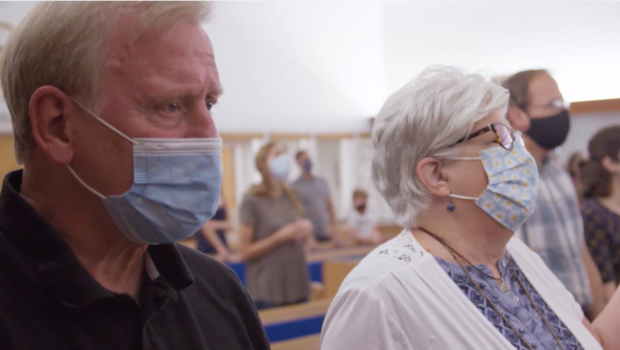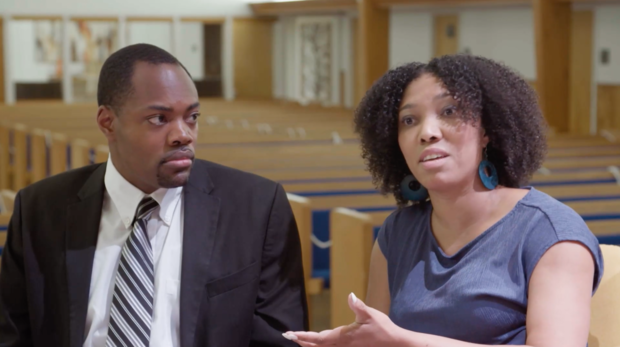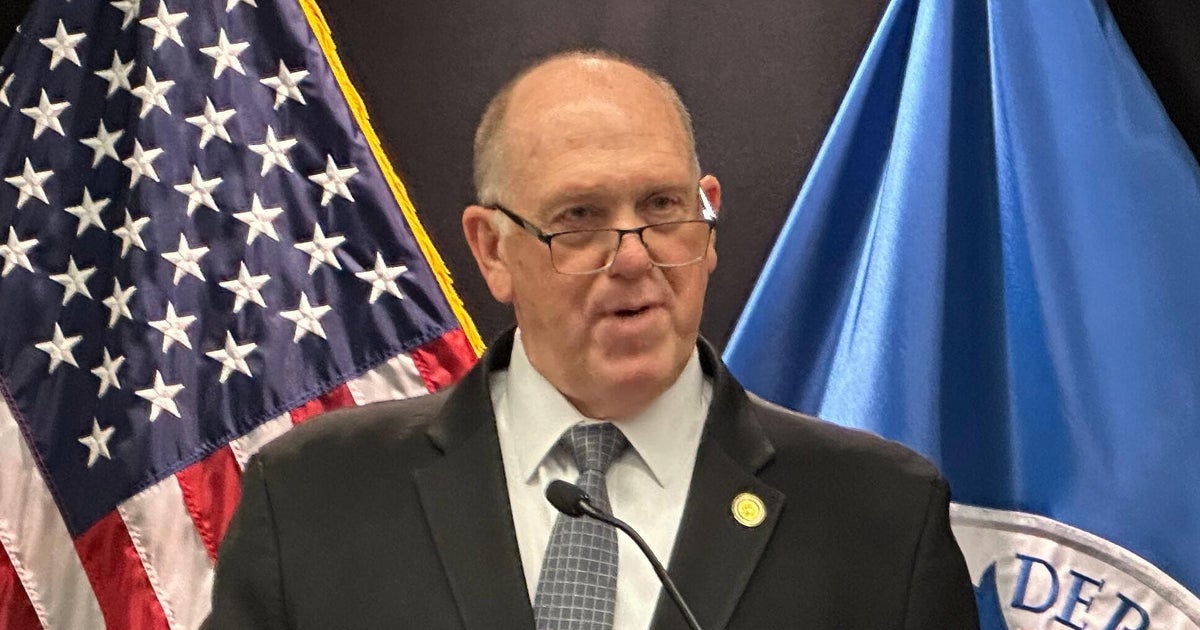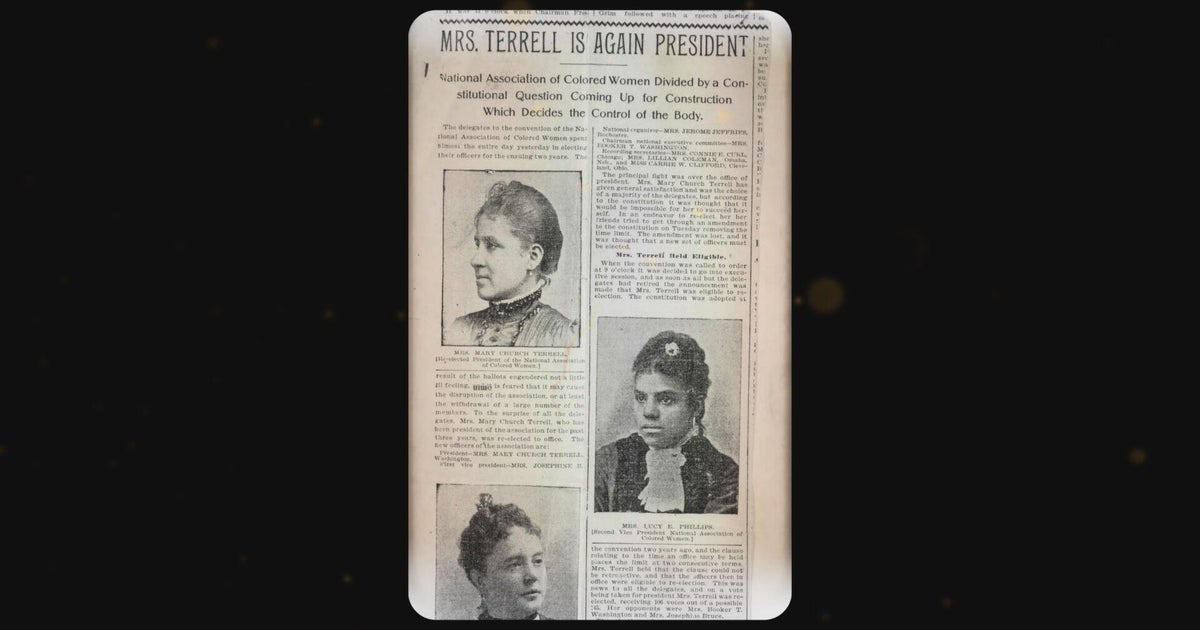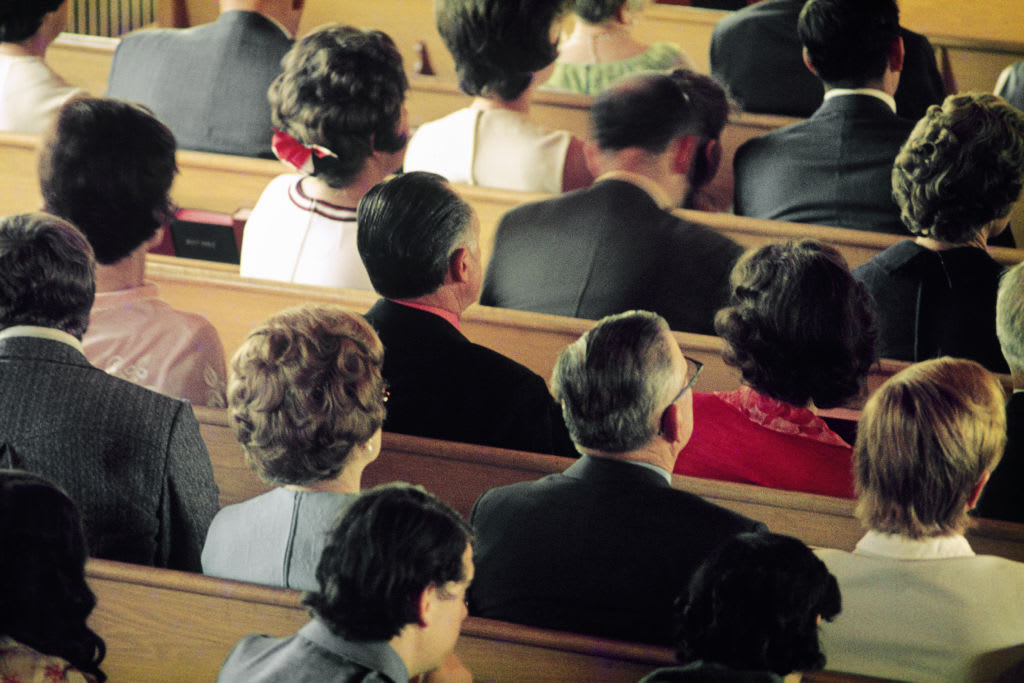White evangelicals dealing with racial issues and faith: "If I've been wrong about that, what else have I been wrong about?"
Watch the CBS Reports documentary "An (Un)Civil War: The Evangelical Divide" in the video player above.
At Koinonia Church in Nashville, Tennessee, Alan and Penny Godwin watch as Pastor Mika Edmondson preaches about racism that existed in some Christian communities for centuries.
The Godwins, who belonged to a predominantly White evangelical church for 30 years, joined Koinonia Church in November 2020, the first week that Edmondson launched it with the aim of building a more diverse congregation. Koinonia reflects the growing diversity of American Christianity, which has seen the share of Protestants of color nearly double between 1991 and 2016.
"We both said, 'You may not want a couple of old White people to join your church, and that's fine if you don't. But we're interested in your success with whatever you're going to do there,'" said Penny Godwin, 67.
The Godwins said that on the issue of race, their former congregation was divided. "I think some of the leaders were very comfortable addressing these issues, but not everybody in the congregation was comfortable with it," said Alan Godwin, 68. "And so, if they were to broach some of these subjects they got a lot of pushback. I think they had the suspicion that people would bolt and leave if they brought it up and made it too much of an issue."
The couple said their decision to switch churches was heavily influenced by the police killings of Black men and women, which Penny admits she used to dismiss and even assumed were justified. "That kind of terrible thinking that rattles around in your head when you're in a little white bubble. Anyway, that opened that for me. So it was like, 'If I've been wrong about that, what else have I been wrong about?' It opened my mind in a way that had not happened, and I didn't consider myself to be a close-minded person."
Not everyone agreed with the Godwins' decision to leave their old church. "We've got a lot of Facebook friends, social media friends that we've known, in some cases for almost 50 years," Alan said. "There are even people that I went to college with who are still very much in that segment of evangelicalism that believes this is all just stoked-up, contrived racism for some sinister purpose. I think the general assumption is that either we've lost our minds, or we've got duped by some Marxist philosophy."
Conservative political commentator David French, now the editor of The Dispatch, has spent much of his career studying the politics of White evangelicals, who made up 14% of the U.S. population in 2020. He notes that in politics, "evangelical" is often assumed to be "White evangelical." He points out that the evangelical community is not so monolithic: "If you look at the evangelical community more broadly, people of every race and ethnicity who believe broadly the same theological propositions, then it's much more closely divided."
Some evidence of this move toward greater inclusiveness could be seen at this year's election for president of the Southern Baptist Convention, when Ed Litton, who ran on a message of unity and diversity, beat ultraconservative candidate Mike Stone, albeit by just 4 points.
Fundamentalist pastors were dismayed by Litton's victory. Pastor Greg Locke, who has sparked controversy for sermons questioning the legitimacy of the 2020 election and spreading misinformation about COVID-19, said the vote represents a power struggle across evangelical denominations. "They just voted in, without a doubt, the most liberal leftist president they've ever had," Locke said. "There was this conservative resurgence for years. And so now people are struggling. Is the Bible of the word of God? Is it just a book written by men? The critical race theory. Everything now is up for grabs. And so there's this massive division."
Locke said churches that preach about race are making the problem worse. "The problem is, everybody wants to keep picking the scab. That's what these social justice churches are picking a scab, picking a scab. Leave it alone, let it heal. And they won't let us heal because they keep bringing it up," Locke said. "They're trying to, they're trying to take away the structure of who we are as Americans to make us look inherently racist."
Edmondson said that Christians who don't acknowledge America's structural racism are propping up bigotry with their silence. "I think people want to affirm the sort of inherent goodness of America and the American project. They want to say America is a good country," Edmondson said. "But in their attempt to try to affirm the goodness of America in every respect they often are overlooking, downplaying, and perhaps even reinforcing the sufferings of a lot of people."
Koinonia's scholar-in-residence and Pastor Mika Edmondson's wife, Dr. Christina Edmondson, said that these demographic shifts have created fear for many White evangelicals. "That creates all kinds of psychological unease, frustration, fear, conflict with family of origin, what they've been given, the mythologies about America that they've been handed over to them," Edmondson said. "It will continue to be used as a really effective political strategy particularly as people are having this existential crisis."
Political scientists have named this ideology Christian nationalism, which fuses patriotism with Christianity. Experts use the term to describe a group of people who believe America was founded as a Christian nation that needs to be restored to its roots.
Before joining Koinonia, Penny and Alan Godwin felt the momentum growing behind Christian nationalist ideologies. "I don't know that I'd ever heard the term Christian nationalism before a couple of years ago. And the more that I read about it, the more I understand about it, there have been great tendencies for people to conflate America and Christianity," said Alan. "And the more they rally to that cause, the more extreme they become. And so people that have had the mentality that we have felt ourselves increasingly on the outs, in that kind of space. That's one of the reasons we felt like we had to leave."
